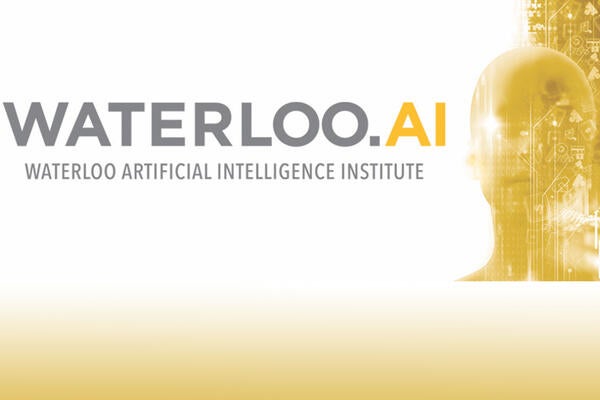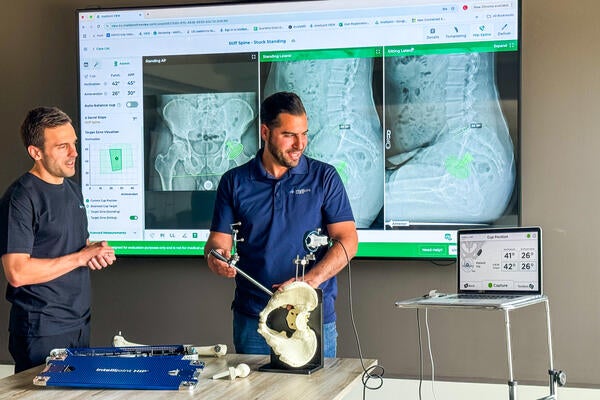
New partnership boosts AI research at Waterloo
Waterloo’s Artificial Intelligence Institute joins Microsoft Canada to harness AI for Good

Waterloo’s Artificial Intelligence Institute joins Microsoft Canada to harness AI for Good
By Staff University Relations
Artificial Intelligence (AI) has the ability to do amazing things — from tackling climate change to providing more accessible health care, human-machine learning continues to change the world.
But are we ready?
According to a recent study, Canada ranked ninth out of ten countries when it came to the adoption and deployment of AI business applications — a shocking revelation when Canadian AI job opportunities grew by 500 per cent between 2015 and 2017. So why are we lagging globally and how can we fix it? The answer — invest in more skilled workers.
Recognizing a shortage in skills as the biggest barrier for AI growth, the University of Waterloo AI Institute (Waterloo.ai) and Microsoft Canada are teaming up to support eight research projects on campus.
Grants supported by Microsoft will allow Waterloo to leverage computational power and machine learning capabilities to improve research in the areas of emotion discovery for autistic individuals, climate change projections, fall detection for the elderly and disaster response.
“The greatest challenges facing society today cannot be solved without strong partnerships across industry and academia that bring together our world-renowned researchers with leading technology and expertise,” says Feridun Hamdullahpur, president and vice-chancellor. “Artificial Intelligence is going to change the world and we couldn’t imagine a better partner than Microsoft as we produce the solutions that will actively benefit humankind.”
Keeping higher education institutions at the forefront of discovery, the partnership will also help transfer knowledge and talent directly to the economy, bringing together scientists, industry partners and public policy experts to foster purpose-driven innovation. It will help keep the field of AI as a growing driver of Canada’s economy, and build on the $548 million in venture capital that was invested in Canadian AI companies in 2018.
“The University of Waterloo has an outstanding reputation for ground-breaking innovation and we are excited to partners with them, not only to provide leading Microsoft Azur technology, but to provide funding and expertise for the important work of leveraging AI for social good,” says Kevin Peesker, president of Microsoft of Canada. “At Microsoft, we believe that AI is the defining technology of our time and this partnership is part of our commitment to accelerate the growth of AI in Canada, build Canada’s future AI workforce and create a more sustainable world.”
With Microsoft’s support behind AI for Good, Waterloo is turning imagination into reality, harnessing the powers of machine learning to extend the frontiers around education, research and the betterment of society.

Read more
Waterloo.ai will focus on fostering and supporting campus-wide AI research.

Read more
Researchers combine wearable technology & AI to predict the onset of health problems.

Read more
Two University of Waterloo affiliated health-tech companies secure major provincial investment to bring lifesaving innovations to market
The University of Waterloo acknowledges that much of our work takes place on the traditional territory of the Neutral, Anishinaabeg, and Haudenosaunee peoples. Our main campus is situated on the Haldimand Tract, the land granted to the Six Nations that includes six miles on each side of the Grand River. Our active work toward reconciliation takes place across our campuses through research, learning, teaching, and community building, and is co-ordinated within the Office of Indigenous Relations.